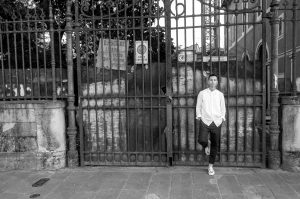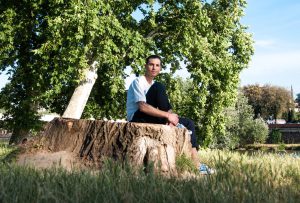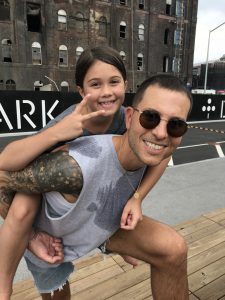 THE CHICAGO TRIBUNE recently published an article that reported: Addiction is a brain disease, “not a choice, not a personality flaw, not a moral failing,” said Dr. Jody Glance, an addiction specialist at the University of Pittsburgh Medical Center. Researchers have found that a key part of what makes opioid addiction so entrenched and difficult to quit is the way the drug changes the brain.
THE CHICAGO TRIBUNE recently published an article that reported: Addiction is a brain disease, “not a choice, not a personality flaw, not a moral failing,” said Dr. Jody Glance, an addiction specialist at the University of Pittsburgh Medical Center. Researchers have found that a key part of what makes opioid addiction so entrenched and difficult to quit is the way the drug changes the brain.
When you sense something pleasurable, the brain releases a natural chemical called dopamine that trains the body to remember, “I liked that, let’s do it again.” That’s the brain’s reward system, and opioids can hijack it by triggering a surge of dopamine larger than nature ever could. Repeated opioid use overloads circuits in multiple brain regions. At the same time, the brain gradually releases less dopamine in response to other things the person once found pleasurable. Eventually they seek more of the drug not to get high, but to avoid constantly feeling low.
My reaction: When my son was in active addiction, I didn’t know anything about the affect of opiates on the brain. It was all so new and overwhelming to me. He was prescribed medication, including methadone and buprenorphine, but he abused everything he came into contact with. Despite my best efforts to find good treatment for my son, I needed additional education and other options.
Today’s Promise to consider: Drug use is not a personal affront to those they love, but it is an addict in pursuit of dopamine stimulation – and eventually, regulation. Brain research shows that addiction seizes the brain and sends the user down a path that’s out of his control. Today, I commit to continuing to educate myself about current addiction and recovery research. I pray for wisdom – for son, myself, and the therapeutic community.

 A mother wrote to me: My youngest daughter is 19. She started with alcohol at age 12 and ended up a heroin addict. After many false starts and years of fearing that ‘phone call’ when I would hear that she is dead, she finally is in an inpatient center. After completion, she wants to come home. I want her home, but I am also realistic that we are NOT out of the woods by a long shot. She is going to need help from someone who truly ‘gets it’ and is not family. Our family is still healing – we have a very long way to go.
A mother wrote to me: My youngest daughter is 19. She started with alcohol at age 12 and ended up a heroin addict. After many false starts and years of fearing that ‘phone call’ when I would hear that she is dead, she finally is in an inpatient center. After completion, she wants to come home. I want her home, but I am also realistic that we are NOT out of the woods by a long shot. She is going to need help from someone who truly ‘gets it’ and is not family. Our family is still healing – we have a very long way to go. A dad wrote: I spent weeks trying to find my addicted son. Eventually, I found him and my plan was to kidnap him and take him to safety. I did kidnap him – he looked like a prisoner from a concentration camp – but I didn’t take him to safety. Once I had him with me, I called my counselor who told me to release him immediately. I opened the rear doors to the van, and he stepped out, hugged me, and said, “I love you, Dad.” With tears in my eyes and a broken heart, I hugged him back, and told him I loved him, too. Then I watch him disappear into an apartment complex. I was sure I would never see him again. Today, he is six years clear and sober, a licensed electrician, and a true joy to be around. Miracles do happy. Never give you hope.
A dad wrote: I spent weeks trying to find my addicted son. Eventually, I found him and my plan was to kidnap him and take him to safety. I did kidnap him – he looked like a prisoner from a concentration camp – but I didn’t take him to safety. Once I had him with me, I called my counselor who told me to release him immediately. I opened the rear doors to the van, and he stepped out, hugged me, and said, “I love you, Dad.” With tears in my eyes and a broken heart, I hugged him back, and told him I loved him, too. Then I watch him disappear into an apartment complex. I was sure I would never see him again. Today, he is six years clear and sober, a licensed electrician, and a true joy to be around. Miracles do happy. Never give you hope. Leonard Cohen wrote:
Leonard Cohen wrote:  A mother wrote to me: I bailed him out and fixed it all. I finally went to Families Anonymous and Nar-Anon and realized I didn’t cause the addiction and I can’t change it – only my son can do that and, by enabling so much, I was doing him more harm than good.
A mother wrote to me: I bailed him out and fixed it all. I finally went to Families Anonymous and Nar-Anon and realized I didn’t cause the addiction and I can’t change it – only my son can do that and, by enabling so much, I was doing him more harm than good.  Our beloved Dr. MacAfee said: For the addict, an opening to recovery appears when the pain of maintaining the fiction becomes greater than the pleasure the drugs provide.
Our beloved Dr. MacAfee said: For the addict, an opening to recovery appears when the pain of maintaining the fiction becomes greater than the pleasure the drugs provide. A friend and mom of adult children, who battle addiction, wrote to me: Today I stay out of my kids’ business. I work a wonderful 12-step program, have a sponsor, and am a sponsor. Today my God is first in my life and I start every morning by asking, “What is Your will for me today?” I can hear my God talk to me clearly because I kicked out the ladies in the attic.
A friend and mom of adult children, who battle addiction, wrote to me: Today I stay out of my kids’ business. I work a wonderful 12-step program, have a sponsor, and am a sponsor. Today my God is first in my life and I start every morning by asking, “What is Your will for me today?” I can hear my God talk to me clearly because I kicked out the ladies in the attic. A mother wrote to me: My son is a recovering alcoholic, but he doesn’t know how to live in recovery. Sure, he knows that he can’t drink or hang out at parties, but it’s tough for him. He was used to having drinks with his brothers and friends. When they were young, my husband and I had parties where there was drinking. Now I wish I had never drunk in front of my kids. We are a big football family, so I don’t have to tell you what Sundays are like around this town. Very hard for a recovering addict.
A mother wrote to me: My son is a recovering alcoholic, but he doesn’t know how to live in recovery. Sure, he knows that he can’t drink or hang out at parties, but it’s tough for him. He was used to having drinks with his brothers and friends. When they were young, my husband and I had parties where there was drinking. Now I wish I had never drunk in front of my kids. We are a big football family, so I don’t have to tell you what Sundays are like around this town. Very hard for a recovering addict. My son recently told me, The biggest realization for me came about one year in when it suddenly struck me that my life was full to the brim in a way I didn’t think possible in the absence of drugs and alcohol. Before I got clean, I saw sobriety as the end of good times and of the refuge I’d come to depend on. Just the opposite was true.
My son recently told me, The biggest realization for me came about one year in when it suddenly struck me that my life was full to the brim in a way I didn’t think possible in the absence of drugs and alcohol. Before I got clean, I saw sobriety as the end of good times and of the refuge I’d come to depend on. Just the opposite was true. Two mothers of children who entered San Patrignano (Rimini, Italy) wrote to me:
Two mothers of children who entered San Patrignano (Rimini, Italy) wrote to me:
6 Comments.
View Comments | Leave a Comment